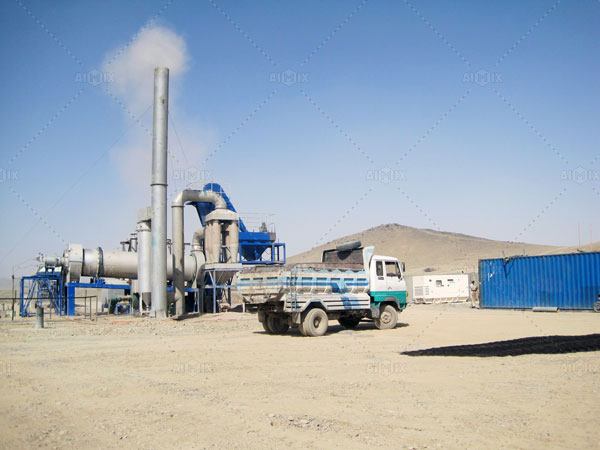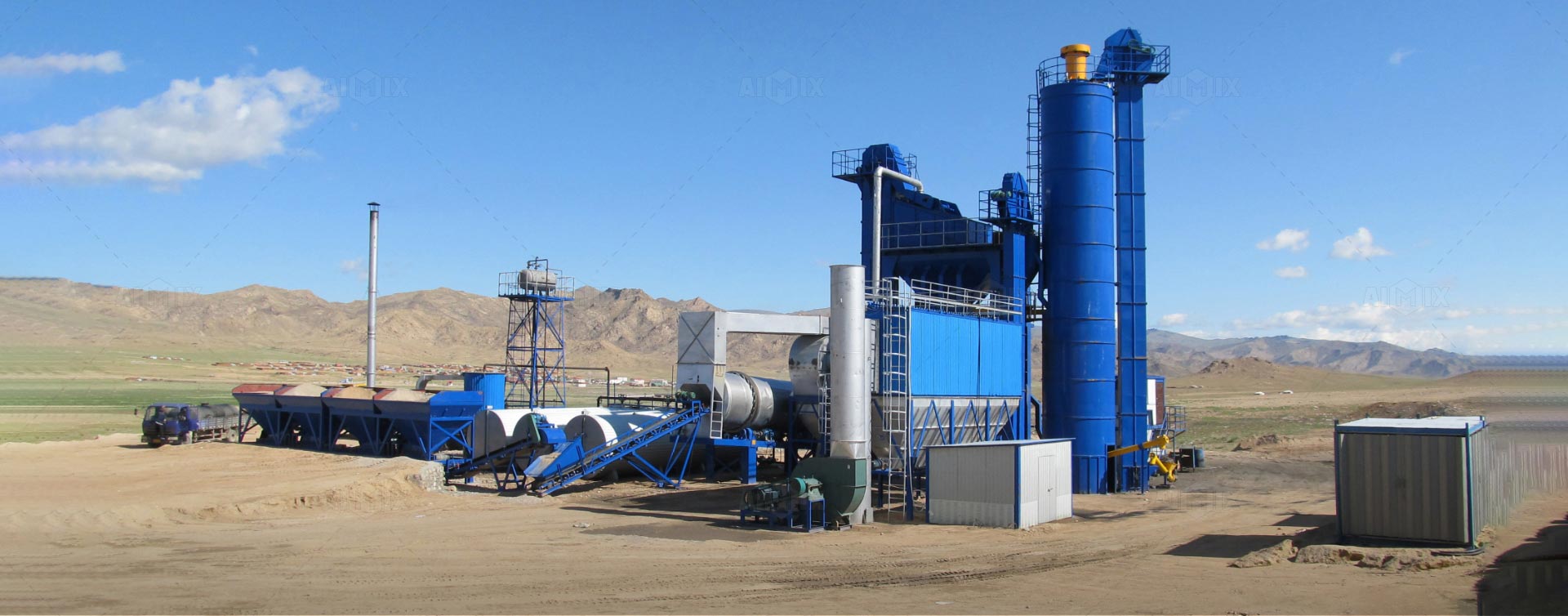There are several types of asphalt mixing equipment available, each designed for specific purposes and production capacities. Here are some common types of asphalt mixing equipment:
Batch Mix Plant
A batch mix plant is the most common type of asphalt mixing plant. It produces asphalt in batches, allowing for precise control over the mix design and production process. In a batch mix plant, aggregates and asphalt binder are mixed in a separate dryer drum, and the resulting hot mix is discharged into storage silos. Batch mix plants are suitable for small to medium-sized projects and offer flexibility in mix design and production.
Continuous Mix Plant
In a continuous mix plant, aggregates and asphalt binder are continuously fed into the mixing chamber. The continuous mix process allows for a constant flow of asphalt production, without the need for batching. Continuous asphalt plants are known for their high production capacity and efficiency. They are suitable for large-scale projects with high asphalt demands and provide a continuous supply of hot mix asphalt.
Drum Mix Plant
Drum mix plants, also known as counterflow plants, are similar to batch mix plants but have a unique drum design. In a drum mix plant, aggregates and asphalt binder are mixed in a single drum, resulting in a continuous production process. The drum rotates, and the hot mix asphalt is discharged directly into trucks or storage silos. Drum mix plants offer high production capacity, efficient mixing, and easy transportation of the hot mix.

Mobile Asphalt Plant
Mobile asphalt plants are portable and can be easily transported to different job sites. They are compact in size and offer flexibility in terms of location and installation. Asphalt mobile plants can be either batch mix or continuous mix plants, providing on-site production capabilities for small to medium-sized projects.
Stationary Asphalt Plant
Stationary asphalt plants are fixed installations that are designed for long-term use at a specific location. They are typically larger in size and offer high production capacity. Stationary plants can be either batch mix or continuous mix plants, depending on the specific requirements of the project. They are suitable for large-scale projects and provide consistent and reliable asphalt production.

Parallel Flow Plant
Parallel flow plants are similar to drum mix plants but operate with a different mixing process. In a parallel flow plant, aggregates and hot air flow parallel to each other in the drum, resulting in efficient mixing and heating. Parallel flow plants are known for their high thermal efficiency and are suitable for projects requiring high-quality asphalt.
Counterflow Plant
Counterflow plants operate in a manner opposite to parallel flow plants. In a counterflow plant, aggregates, and hot air flow in opposite directions, allowing for better control over temperature gradients and improved mixing. Counterflow plants offer efficient heat transfer and are commonly used for producing high-quality asphalt mixtures.
Each type of asphalt mixing equipment has its advantages and is suitable for different project requirements. The choice of equipment depends on factors such as project scale, production capacity, mobility, and specific mix design needs. It is important to consult with an experienced asphalt batch mix plant manufacturer or consultant to determine the most suitable type of equipment for your specific project.